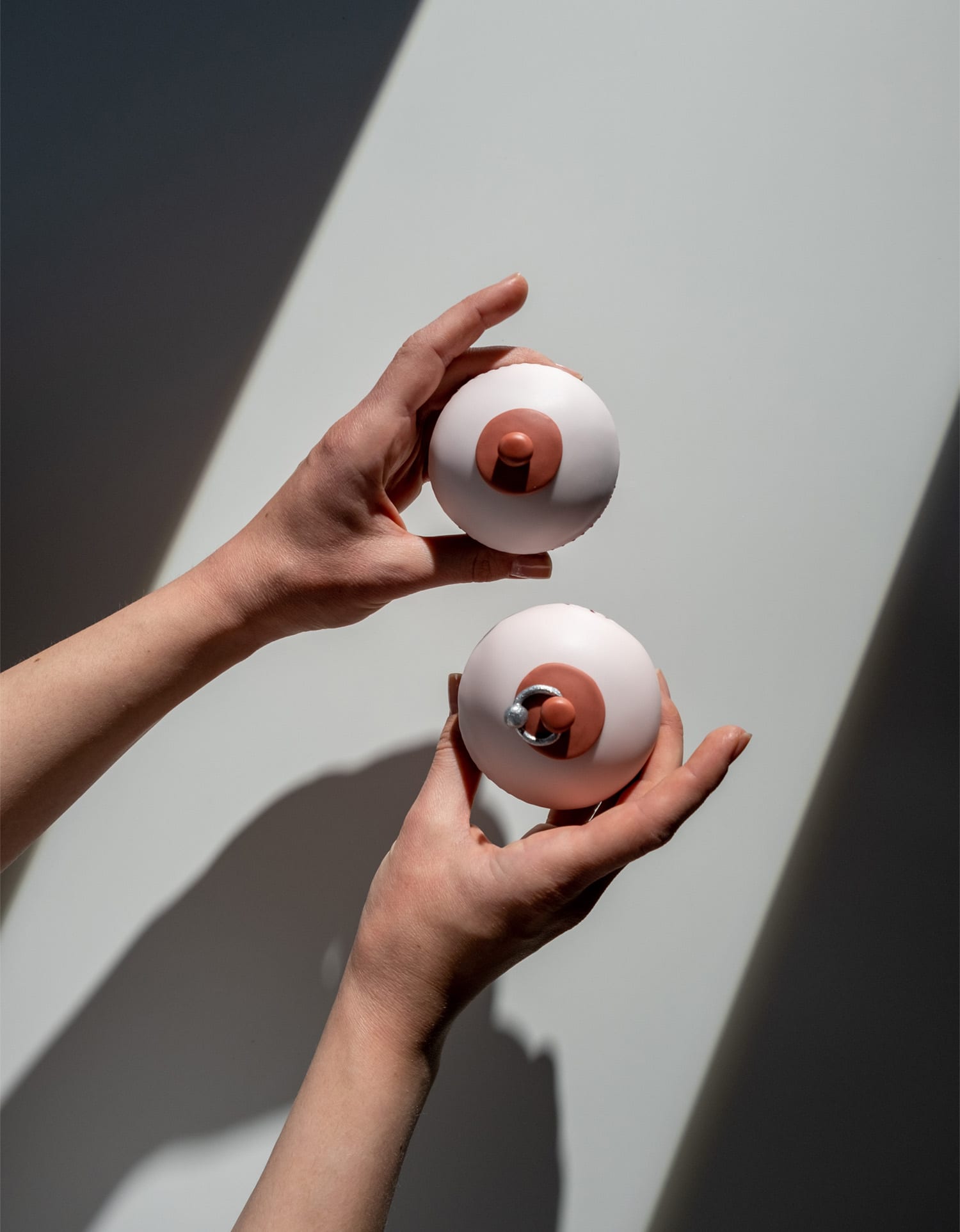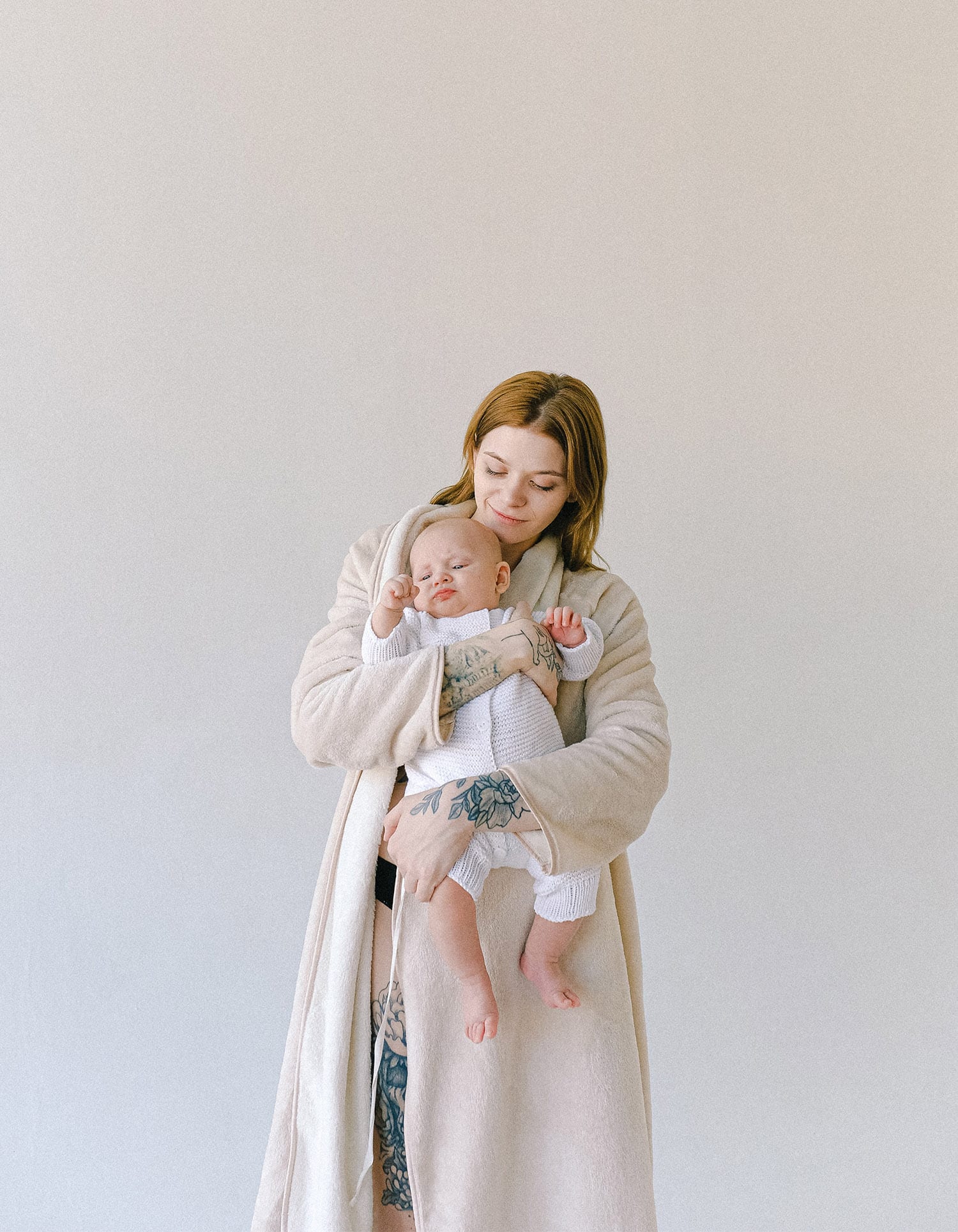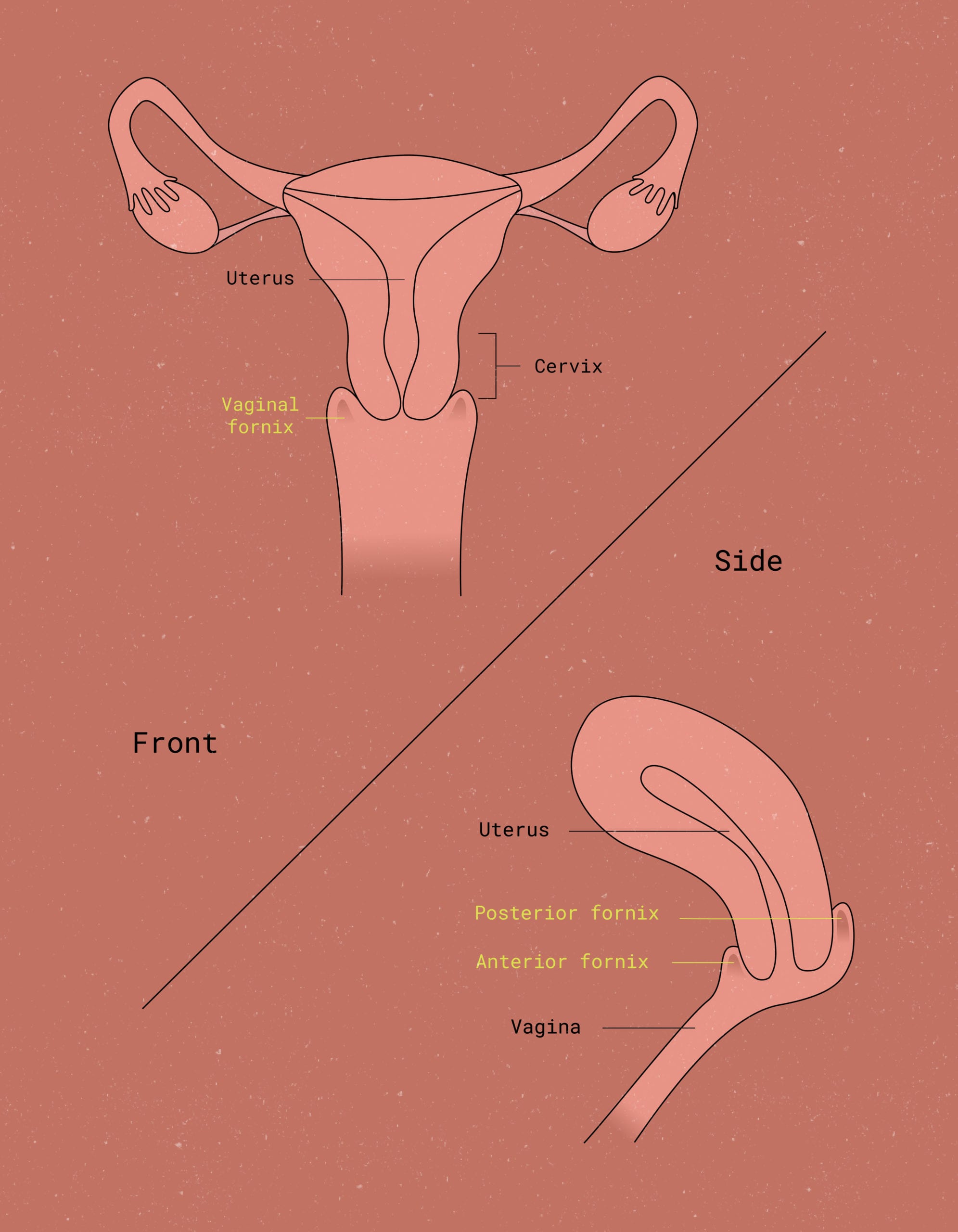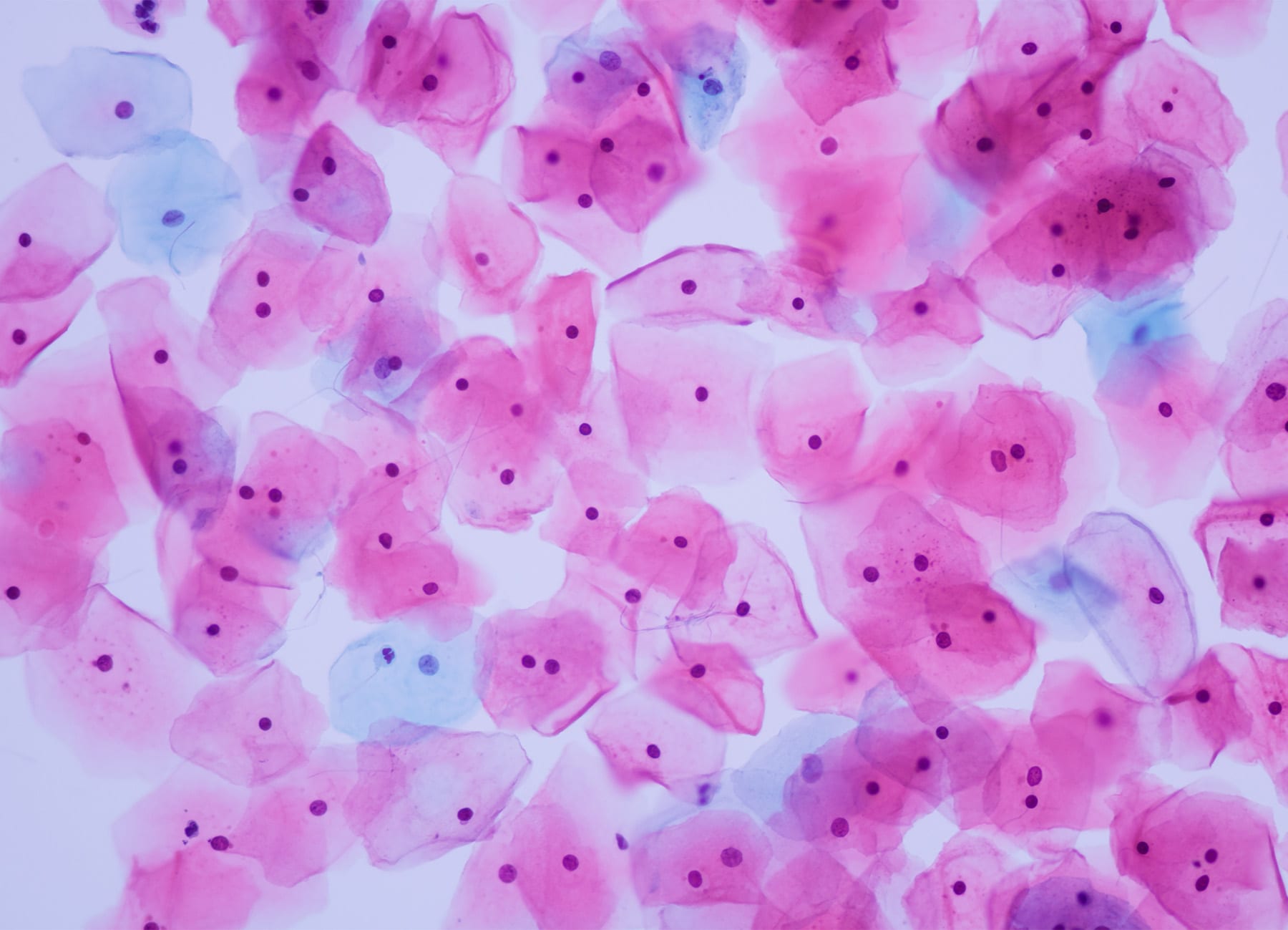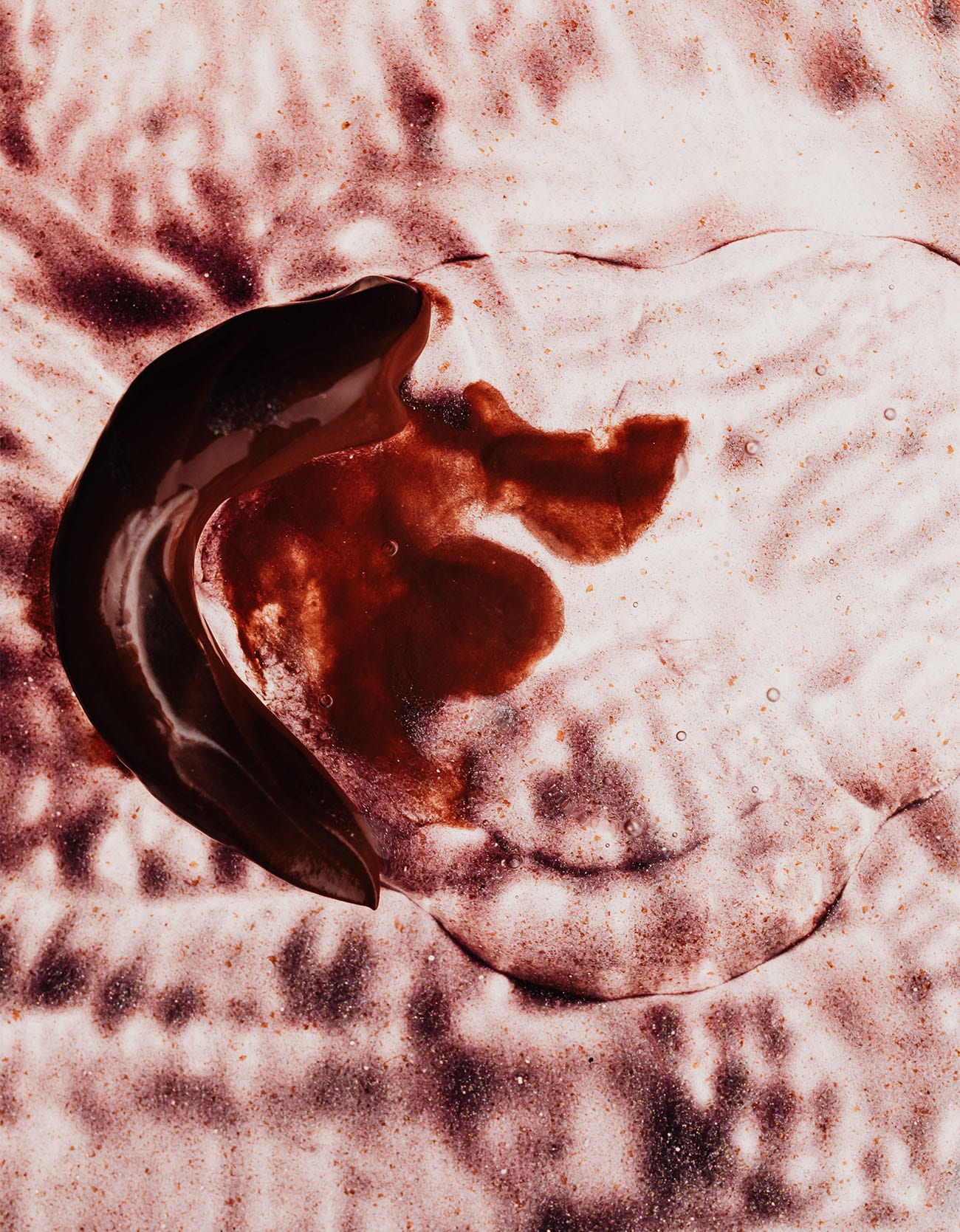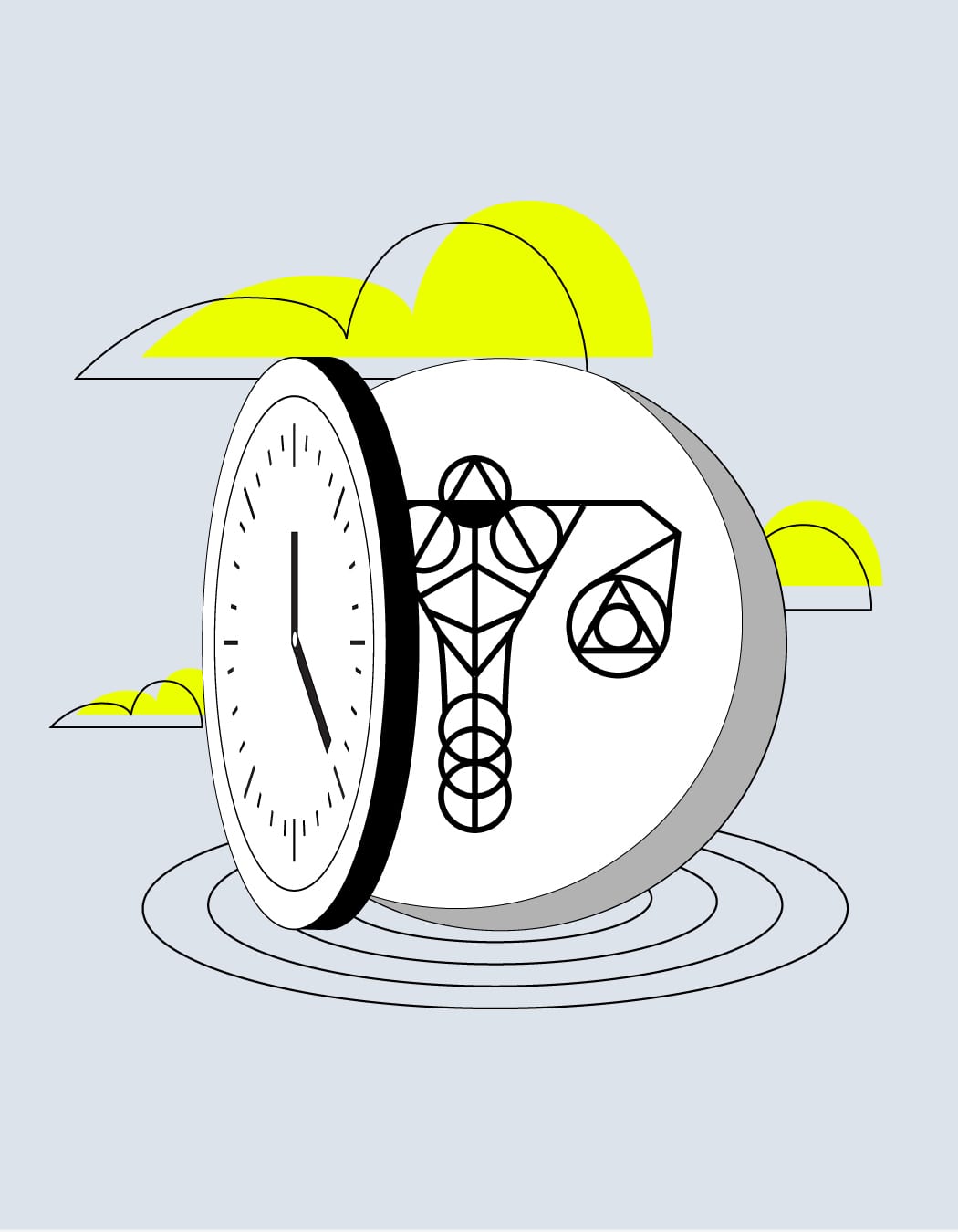Why do my boobs hurt every month?
Breaking down breast pain: What’s normal & what’s not
Boobs. Why do your boobs hurt every month? For something that is essentially fatty tissue (like many other parts of our bodies), boy do they come with a lot of baggage! However you feel about them, though, if you’re a menstruating person, odds are they’ve caused you aches or discomfort at some point in your life.
Let’s talk through your boob pain and one significant cause: Hormones.
Hormonal breast pain: a.k.a mastalgia or mastodynia
70% of people with breasts experience breast pain, also referred to as mastalgia or mastodynia, at some point.((Goyal, A. (2014). Breast pain. BMJ Clinical Evidence, 2014, 0812.)) This pain in the breast can be a side effect of your menstrual cycle (cyclical breast pain) or, well, not (non-cyclical).((Grullon S, Bechmann S. Mastodynia. [Updated 2022 Jun 11]. In: StatPearls [Internet]. Treasure Island (FL): StatPearls Publishing; 2022 Jan-. Available from: https://www.ncbi.nlm.nih.gov/books/NBK559249/)) This type of pain usually affects both breasts, but can be also felt in only one. Right now, we will discuss the type of breast pain originating from the menstrual cycle.
What causes hormonal breast pain?
Throughout the menstrual cycle, hormone levels and ratios fluctuate (read more about how the cycle works here). The two key hormones in the menstrual cycle are estrogen and progesterone, and it’s the ups and downs of these hormones that can cause your breasts to feel painful, lumpy, and swollen.((Johns Hopkins Medicine. (n.d.). Breast pain (Mastalgia). https://www.hopkinsmedicine.org/health/conditions-and-diseases/mastalgia-breast-pain))
But, why do my breasts hurt and feel heavy? In the weeks before your period starts, the sensation you may be feeling is the stimulation of your glands and milk ducts: They are increasing in size and number in case lactation becomes necessary.((Harvard Health Publishing. (2020, July 7). Breast pain: Not just a premenopausal complaint. Harvard Health. https://www.health.harvard.edu/pain/breast-pain-not-just-a-premenopausal-complaint)) This makes the breasts swell and retain water, hence the breast tenderness and soreness you feel.

Fibrocystic breast changes
While your menstrual period may be the real culprit, your hormonal breast pain may be exacerbated due to something called fibrocystic breast changes, which can cause cysts to develop in the breasts. Fibrocystic breast changes can also cause more prominent scar-like (fibrous) tissue, which can make boobs feel sore, tender, lumpy or ropy. Don’t freak out: it’s not as bad as it sounds.
These breast cysts can fill up with fluid. More fluid-filled cysts= more stretched tissue = more discomfort. ((Smith, L. (2018, November 21). 10 common causes of breast pain. Medical and health information. https://www.medicalnewstoday.com/articles/311833))
Here’s the thing: Fibrocystic changes happen to about half of AFABAFAB stands for “assigned female at birth.” (assigned female at birth) in their 20s through 50s and is generally not dangerous. It’s just uncomfortable and can sometimes cause nipple discharge.((Smith, L. (2018, November 21). 10 common causes of breast pain. Medical and health information. https://www.medicalnewstoday.com/articles/311833)) Of course, it’s always a good idea to check in with your health care provider if you’re concerned.
So, how do you know if your breast pain is hormonal?
Track it, baby! Cycle tracking is an awesome way to better understand your unique body. Because oftentimes the breasts are left out of the period convo, you may need to create your own section in the tracker to make a note of how your boobs feel over time.
After a handful of cycles, you might notice a clear pattern like, ohhh my boobs KILL because I’m about to ovulate. COOL!
Okay. So you’ve tracked your symptoms, and yes, those painful boobs are because of your menstrual cycle. What’s a menstruator to do?
How to cope with hormonal breast pain
Always talk to your healthcare provider, first, if hormonal breast ache is starting to interfere with your day to day life. Your provider might recommend:
- Breast supportive bra (i.e. a specialized, well-fitting bra)
- NSAIDs or over-the-counter painkillers
- Cutting out the caffeine
- Dietary changes, such as reducing sodium intake
- Vitamin E and/or Vitamin B-6
- Ice or heat therapy
In some cases, you may have a benign cyst that needs to be drained or removed. Check in with your provider if you think this could be the case.
Can wearing the wrong bra size cause breast pain and discomfort?
Yes, wearing the wrong bra size can cause pain and discomfort. Ill-fitting bras can put pressure on the breasts, leading to soreness and tenderness. It is important to get properly fitted and choose a bra that provides proper support to avoid discomfort.
Could it be cancer? When to worry about breast pain
While we are used to pain = something really, really bad, breast pain actually isn’t typically the first sign of breast cancer.((Mayo Clinic. (2019, January 31). Breast pain – Symptoms and causes. https://www.mayoclinic.org/diseases-conditions/breast-pain/symptoms-causes/syc-20350423))
Generally, the first symptom of breast cancer is a painless, hard lump (like a frozen pea), which is why it is so important to do monthly checks.((Salisbury Hospital. (n.d.). Benign breast problems. https://www.salisbury.nhs.uk/wards-departments/departments/breast-department/benign-breast-problems/)) When doing a self-exam, remember to start at the armpit – you have breast tissue there!
If you ever do find a lump or aren’t sure if what you’re feeling could be a lump, check in with your health team. While pain typically isn’t the first symptom, if you do have noncyclic breast pain that is unaccounted, and/or located on a particular area of your breasts, it’s always better to play it safe: Go get checked out.
A family history of breast cancer usually means you are at increased risk of breast cancer, so it’s important to be vigilant and proactive in monitoring any changes or symptoms. Regular breast exams, mammograms and/or ultrasounds are recommended for individuals with a family history of cancer.
Key Takeaways
Remember, breast pain is a common symptom experienced by many menstruators and is often related to hormonal fluctuations. However, if you have concerns or the discomfort becomes persistent or unusual, it’s always best to consult with your healthcare provider for an accurate diagnosis and appropriate guidance.
In the meantime, practicing self-care and implementing some of the coping strategies mentioned earlier can help alleviate discomfort and manage hormonal breast pain effectively.
Written in partnership with: Allbodies.com
This article is informational only and is not offered as medical advice, nor does it substitute for a consultation with your physician. If you have any gynecological/medical concerns or conditions, please consult your physician.
© 2024 The Flex Company. All Rights Reserved.
